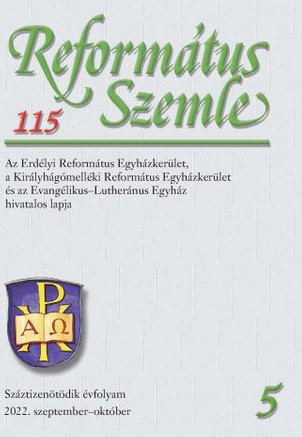Az ember instabil és stabil állapota. A halál és örök élet fogalma Kálvinnál
The Instable and Stabil State of Man. The Concepts of Death and Eternal Life in the Works of Calvin
Author(s): Attila SimonSubject(s): Christian Theology and Religion, 16th Century, Biblical studies, Systematic Theology
Published by: Erdélyi Református Egyházkerület
Keywords: Calvin; eschatology; death; eternal life; hope; faith; grace; covenant;
Summary/Abstract: This short study, drawing on a small part of Calvin’s vast written corpus, seeks to show how the reformer used the concepts of eternal life and death. Tackling with uncertainties on the fringes of eschatology, Calvin shows how difficult it is to grasp the meaning of these two concepts, even when the theologian stands on firm biblical theological grounds. The commentaries of Calvin on the Book of Psalms and the Gospel of John, as well as his letters give a sense of the changes that man, the creation of God, must undergo in order to be able to find relief from the severe ordeal of facing death and to be helped by the hope of eternal life. It is God’s grace that lifts man up from the state of death so that his unstable life may find stability.
Journal: Református Szemle
- Issue Year: 115/2022
- Issue No: 5
- Page Range: 533-546
- Page Count: 14
- Language: Hungarian

